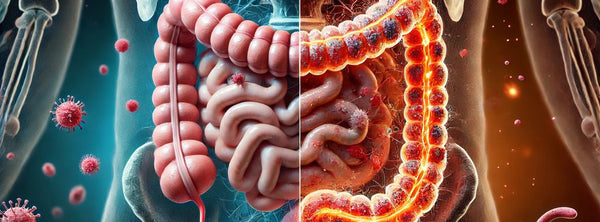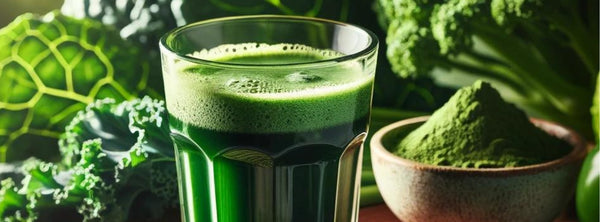
Unlocking the Secrets of Collagen: Beyond Skin-Deep Beauty
The mere mention of "collagen" often conjures images of plump lips and flawless skin, typically associated with cosmetic procedures. Fortunately, the journey to health and vibrancy doesn't necessitate such extreme measures. Collagen is an incredible protein naturally crafted by our own bodies and its influence extends far beyond the superficial. It's a silent hero, working diligently in various aspects of our well-being.
Collagen The Body's Unsung Superhero
Imagine this: a well-oiled machine, where each component works in perfect harmony to keep things running smoothly. Our bodies are no different – they represent a complex, intricate system of bones, muscles, blood vessels and even intestines that enable us to move, feel and thrive. At the core of this intricate web of health lies a silent yet indispensable hero – collagen.
Collagen is more than just a protein; it's the unseen architect behind the scenes. From the flexibility of your joints, to the strength of your bones, the robustness of your muscles and the health of your blood vessels and intestines, collagen is the unsung guardian that keeps it all in check. It forms the foundation upon which our well-being is built.
Collagen: The Foundation of Health
Collagen, often hailed as the body's unsung hero, plays a crucial role in maintaining our overall well-being. With at least 28 different types of collagen found in the human body, this remarkable protein constitutes over 30% of our total protein composition, serving as the foundation upon which our physical vitality is constructed.
The main types of collagen—Type I, Type II, and Type III—each contribute to the health of specific body components. Here's a closer look at the roles of these main types within the body:
- Type 1 Collagen: This type of collagen reigns supreme in our skin, tendons, ligaments, muscles, bones, and even the intestines. It acts as the scaffold that provides support and structure, making our skin appear youthful, our muscles and bones sturdy, and our intestines healthy.
- Type 2 Collagen: Type 2 collagen, on the other hand, is mainly found in cartilage. Cartilage is the rubbery, flexible tissue that cushions our joints, allowing for smooth and pain-free movement. As we age, maintaining healthy type 2 collagen becomes increasingly essential to sustain joint health and mobility.
- Type 3 Collagen: Type 3 collagen contributes to the strength and flexibility of blood vessels, ensuring healthy circulation throughout the body. It's also present in our organs, making it a vital component for their structural integrity. This type of collagen acts as an invisible guardian, silently supporting the health of our innermost systems.
Essential Nutrients for Collagen Production
Collagen production within the body is reliant on an array of essential nutrients, with specific amino acids playing a central role. The main amino acids for collagen synthesis include:
- Proline: Proline is a fundamental amino acid in collagen production, contributing to the stability of collagen's triple helix structure.
- Glycine: Glycine is another essential amino acid that plays a crucial role in collagen formation, ensuring its structural integrity.
- Hydroxyproline: Hydroxyproline, a derivative of proline, is vital for collagen stability, particularly in Type I collagen.
Unfortunately, as we step into our 30s, the curtain falls on our collagen production. This decline marks the beginning of both the visible and hidden signs of ageing, which quietly but unmistakably start to emerge.
Signs of Collagen Deficiency: Are We Missing the Clues?
When it comes to collagen deficiency, our bodies have a way of dropping subtle hints. Some folks may experience just one of these signs, while others might notice several. Here, we've compiled a list of the 11 most common signals that your body might need a collagen boost to maintain that healthy, youthful glow.
Wrinkles and Skin
Ageing gracefully is a beautiful journey, but it comes with some changes, particularly in our skin. That youthful radiance can start to dim as our skin becomes drier, and those fine lines begin to appear. But here's where the unsung hero, collagen, steps in, in particular type 1 collagen.
Collagen plays a vital role in maintaining the thickness, elasticity, and hydration of our skin.[1] It's not just about appearances; collagen is the backbone of the connective tissue that holds everything in place within our bodies. When this connective tissue dwindles, wrinkles and sagging are quick to make their entrance.
The good news is that hydrolysed collagen peptides, sourced from bovine, porcine, and marine origins, offer a rejuvenating solution. They give your skin's collagen levels a much-needed boost, enhancing moisture retention, elasticity, and bidding farewell to those fine lines and wrinkles.[2]
Osteoarthritis and Joint Pain
Imagine a life where every step is pain-free, every movement is effortless, and every day is an adventure. Our joints are the unsung heroes of our mobility, enabling us to relish life's every moment. However, as time goes by, the wear and tear on our joints can take its toll, leading to stiffness, inflammation, and pain, often culminating in Osteoarthritis – a condition that can make every step a challenge.
But there's hope on the horizon, and it comes in the form of collagen – specifically, type 2 collagen. This remarkable protein, when taken as a daily supplement of 10g of collagen peptides over six months, can work wonders for your joints.
Our joints, when moving freely, allow us great movement and flexibility. Unfortunately, when our joint health deteriorates, they become stiff, inflamed, painful and swollen resulting in Osteoarthritis. Studies show that a daily serving of 10g of collagen peptides per day over six months dramatically improves joint health, pain, stiffness and movement.
Muscle Aches
Tendons connect muscle to muscle, while ligaments connect muscle to bones and all contain collagen. As collagen levels decline, the ligaments, muscles and tendons shrink, causing them to rub together and create friction, which can lead to stiff, swollen, inflamed and painful joints. Most of our body's supply of collagen is in our connective tissue, which helps to connect the ligaments, tendons and muscles to our skeletal system. As collagen depletes, these connections weaken, which can cause complications like muscle aches and pains.
Studies have shown that long-term (greater than six months) supplementation of hydrolysed collagen peptides helps reduce bone and muscle pain plus improve function, in people suffering from Osteoarthritis.
Cellulite
Cellulite occurs when fat protrudes into the layer of skin cells resulting in a dimpled, lumpy or golf ball appearance. Declining collagen levels and skin elasticity allows fat to gain easier access into the skin. Thankfully studies have shown that again long-term (greater than six months) hydrolysed collagen peptide supplementation, helps reduce the visible signs of cellulite.
Osteartritis and Osteopenia
When people think of bone health, they usually think calcium. While calcium is essential, it is not the only nutrient that can make a significant impact on bone health. Collagen makes up one-third of the total bone mass. It provides the bones with flexibility and strength. Studies have shown that hydrolysed collagen peptides improve osteoporosis and osteopenia by increasing bone mineral density, increased bone formation and a reduction in bone deregulation.
Organ Prolapse
Connective tissues are the ropes, wire and twine that hold all our organs in place and if they are diminished or lose their strength, our organs drop and prolapses form. Prolapses are common in the uterus, bladder, vagina, bowel and intervertebral discs. Studies show deficiencies in collagen is a leading cause of organ prolapse.
Hallowed Cheeks and Eyes
Looking back through old photos, you may notice that your younger self had a fullness in their face and smoother skin. Back then, our body's could easily produce collagen, but as we aged, that ability began to fade. The result of low collagen can cause the eyes to sink, the cheeks too thin and a darkening of the skin around the eyes. This results in a person having a gaunt and hollowed facial appearance.
Leaky Gut Syndrome
Collagen is a component of the intestinal wall, in particular the tight junctions, which are the cement that hold the intestinal cells together. Studies have shown that hydrolysed collagen peptide supplementation can increase intestinal collagen and reduce tight junction dysregulation. This condition is known as intestinal permeability or Leaky Gut Syndrome and causes faulty tight junctions that allows unwanted substances to pass from the hostile environment of the intestines into the bloodstream.
Blood Pressure and Circulatory Problems
Collagen is a significant component of the heart and blood vessel walls. Altered levels of collagen from inflammation, stress, alcohol or smoking, may result in blood vessels changing their shape or vascular ability, which may result in a reduction of blood flow. This may lead to circulatory problems such as elevated blood pressure, chest pain, dizziness, fatigue, and frequent headaches.
Brittle Hair and Nails
Collagen protein contains the amino acid proline, one of the main components of keratin, which is needed for healthy hair and nails. Studies have shown collagen supplementation can help harden nails and improve growth, as well as reducing hair loss and slow greying.
Weight Loss and Appetite Control
Collagen peptides increase satiety, the feeling of being full. Resulting in a reduced desire to eat, which in turn allows the body to consume stored fat and reduce overall body fat.
Collagen Vascular Disease
Collagen Vascular Disease is a hereditary or autoimmune disease that attacks the connective tissue of the body. Rheumatoid arthritis, systemic lupus erythematosus (SLE), psoriatic arthritis, temporal arteritis and Sjögren syndrome are all forms of collagen vascular disease. Supplementation of hydrolysed collagen peptides has been shown to help slow the demise of collagen.

Causes Of Collagen Decline
While it may be difficult to hold off father time, there are some important strategies to slow him down and allow collagen levels to recede at a slower pace. Below is a list of common causative factors that increase the demise of collagen within the body.
- Stress produces the anti-stress hormone cortisol, which helps to calm the body and reduce adrenaline. Unfortunately, high amounts of cortisol from excessive stress, destroy collagen and lead to increased inflammation. This activates enzymes in the skin that break down collagen.
- Vitamin C Deficiency - vitamin C is an essential nutrient required by the body to produce new collagen. Low vitamin C = Low collagen.
- Zinc Deficiency - Zinc is essential in collagen synthesis and its deficiency leads to a significant reduction in collagen production. Zinc, along with vitamin C and copper, are essential to convert amino acids into collagen.
- Poor Diet rich in white flour products, sugar, food additives, artificial preservatives and flavours increases oxidative stress, inflammation, nutrient deficiencies and a greater susceptibility to stress. This deadly combination leads to the demise of collagen throughout the body.
- Antioxidant Deficiency - Antioxidants are select chemicals that protect cells, including collagen, from damage. Antioxidants containing anthocyanin found in red, purple and blue foods, helps to increase collagen levels. Not all antioxidants directly increase collagen, but they all help to protect it from the toxic effects of sugar, smoking, alcohol, inflammation, stress, chemicals and toxins. Antioxidants are found mainly in fruits, vegetables, herbs, nuts, seeds and whole grains.
- Oxidative Stress has the opposite effect to what antioxidants provide. Think of rusting steel; that's oxidative stress, it causes damage to cells. It occurs for many reasons including; inflammation, poor diet, alcohol, smoking, drugs, antioxidant deficiency, inadequate liver function, dysbiosis and leaky gut syndrome. Oxidative stress indicates the body is low in protective antioxidants, which drives up inflammation and increases the breakdown of collagen.
- UV exposure, especially UVA, penetrates the dermis of the skin and breaks down collagen. UVA light is found in sunlight, black lights, tanning and mercury vapour lamps and some LED lighting.
- Smoking damages collagen in the skin, especially around the face and mouth. Smoking also depletes the body of vitamin C. It increases oxidative stress and inflammation, while reducing the body's total antioxidant content, which all combine to breakdown collagen.
- Alcohol increases inflammation, oxidative stress, depletes vitamin C and inhibits the absorption of zinc. All decrease collagen.
- Long-term inflammation - this is generally associated with ageing or long-term disease, it weakens and destroys collagens structure.
- Sugar produces end products called AGE's that stick to collagen, making it stiff and damaging to its structure.
- Lack of sleep causes fatigue, increases inflammation, compromises the immune system and drives up stress. This slows collagen production and increases its demise.
- Genetics - the genes we received from our parents play a part in all aspects of our health. This includes the ability of our collagen to continue producing as we age. The weaker the genes, the quicker we age.
- Collagen Vascular Disease is a group of diseases including lupus, rheumatoid arthritis, scleroderma and temporal arteritis that destroy collagen and inhibit its production.

How To Increase Collagen Naturally
Even though as we age, our collagen production declines, there are some simple strategies and nutritional supplements that can help slow this process.
- Try and reduce any of the causative factors mentioned above.
- Eat well - increase the amount of antioxidant-rich foods in your diet. Antioxidants are essential to reduce oxidative stress and inflammation. They also help increase and maintain the production of collagen. Bone broths are a good source of collagen, as is gelatin, so try incorporating those into your daily diet. It's essential to try to reduce or eliminate sugars and white flour products from the diet as they deplete essential nutrients and antioxidants as well as increase inflammation, all of which help to destroy collagen.
- Alcohol, smoking and recreational drugs contribute to increased inflammation, cortisol, oxidative stress and nutritional deficiencies, all of which deplete or hinder collagen production. Look at ways of reducing your dependence on these substances.
- Supplement with Zinc, Vitamin C, Copper and Antioxidants as they are the essential nutrients required to ensure proper collagen production. Deficiencies will result in low levels of collagen.
- Hydrolysed Collagen Peptides contains unique amino acids or building blocks required by the body to manufacture quality collagen. Multiple studies have shown that taking 10 to 30 grams of hydrolysed collagen peptides daily, improve collagen levels.
- Drink antioxidant tea or tea with alma berry or essiac tea. Organic tea high in antioxidants will help.
We hope you found this blog '11 Clinical Signs of Collagen Deficiency' useful, and if you did, please leave a comment or share on social media.
Thanks and have a great day!
The information provided in this blog '11 Clinical Signs of Collagen Deficiency' is general and intended for educational purposes only. We make no claims to diagnose, treat, prevent, alleviate or cure illnesses or diseases with any information or product stated. With any health issue, we suggest you consult your healthcare professional before undertaking any health treatment.
References:
- Chen Y, Lyga J. Brain-skin connection: stress, inflammation and skin aging. Inflamm Allergy Drug Targets. 2014;13(3):177-190. doi:10.2174/1871528113666140522104422
- Van Doren SR. Matrix metalloproteinase interactions with collagen and elastin. Matrix Biol. 2015;44-46:224-231. doi:10.1016/j.matbio.2015.01.005
- DePhillipo NN, Aman ZS, Kennedy MI, Begley JP, Moatshe G, LaPrade RF. Efficacy of Vitamin C Supplementation on Collagen Synthesis and Oxidative Stress After Musculoskeletal Injuries: A Systematic Review. Orthop J Sports Med. 2018;6(10):2325967118804544. Published 2018 Oct 25. doi:10.1177/2325967118804544
- Tengrup I, Ahonen J, Zederfeldt B. Influence of zinc on synthesis and the accumulation of collagen in early granulation tissue. Surg Gynecol Obstet. 1981 Mar;152(3):323-6. PMID: 7466582.
- Nanashima N, Horie K, Maeda H, Tomisawa T, Kitajima M, Nakamura T. Blackcurrant Anthocyanins Increase the Levels of Collagen, Elastin, and Hyaluronic Acid in Human Skin Fibroblasts and Ovariectomized Rats. Nutrients. 2018;10(4):495. Published 2018 Apr 16. doi:10.3390/nu10040495
- Ruta Ganceviciene, Aikaterini I. Liakou, Athanasios Theodoridis, Evgenia Makrantonaki & Christos C. Zouboulis. (2012) Skin anti-aging strategies, Dermato-Endocrinology 4:3,pages 308-319. doi.10.4161/derm.22804
- Proksch E, Segger D, Degwert J, Schunck M, Zague V, Oesser S. Oral supplementation of specific collagen peptides has beneficial effects on human skin physiology: a double-blind, placebo-controlled study. Skin Pharmacol Physiol. 2014;27(1):47-55. doi: 10.1159/000351376. Epub 2013 Aug 14. PMID: 23949208.
- Benito-Ruiz P, Camacho-Zambrano MM, Carrillo-Arcentales JN, Mestanza-Peralta MA, Vallejo-Flores CA, Vargas-López SV, Villacís-Tamayo RA, Zurita-Gavilanes LA. A randomized controlled trial on the efficacy and safety of a food ingredient, collagen hydrolysate, for improving joint comfort. Int J Food Sci Nutr. 2009;60 Suppl 2:99-113. doi: 10.1080/09637480802498820. Epub 2009 Feb 11. PMID: 19212858.
- Clark KL, Sebastianelli W, Flechsenhar KR, Aukermann DF, Meza F, Millard RL, Deitch JR, Sherbondy PS, Albert A. 24-Week study on the use of collagen hydrolysate as a dietary supplement in athletes with activity-related joint pain. Curr Med Res Opin. 2008 May;24(5):1485-96. doi: 10.1185/030079908x291967. Epub 2008 Apr 15. PMID: 18416885.
- Schauss AG, Stenehjem J, Park J, Endres JR, Clewell A. Effect of the novel low molecular weight hydrolyzed chicken sternal cartilage extract, BioCell Collagen, on improving osteoarthritis-related symptoms: a randomized, double-blind, placebo-controlled trial. J Agric Food Chem. 2012 Apr 25;60(16):4096-101. doi: 10.1021/jf205295u. Epub 2012 Apr 16. PMID: 22486722.
- Choi FD, Sung CT, Juhasz ML, Mesinkovsk NA. Oral Collagen Supplementation: A Systematic Review of Dermatological Applications. J Drugs Dermatol. 2019 Jan 1;18(1):9-16. PMID: 30681787.
- Schunck M, Zague V, Oesser S, Proksch E. Dietary Supplementation with Specific Collagen Peptides Has a Body Mass Index-Dependent Beneficial Effect on Cellulite Morphology. J Med Food. 2015 Dec;18(12):1340-8. doi: 10.1089/jmf.2015.0022. Epub 2015 Nov 12. PMID: 26561784; PMCID: PMC4685482.
- König D, Oesser S, Scharla S, Zdzieblik D, Gollhofer A. Specific Collagen Peptides Improve Bone Mineral Density and Bone Markers in Postmenopausal Women-A Randomized Controlled Study. Nutrients. 2018;10(1):97. Published 2018 Jan 16. doi:10.3390/nu10010097.
- Dökmeci F, Tekşen F, Çetinkaya ŞE, Özkan T, Kaplan F, Köse K. Expressions of homeobox, collagen and estrogen genes in women with uterine prolapse. Eur J Obstet Gynecol Reprod Biol. 2019 Feb;233:26-29. doi: 10.1016/j.ejogrb.2018.11.019. Epub 2018 Nov 29. PMID: 30550979.
- Gong R, Xia Z. Collagen changes in pelvic support tissues in women with pelvic organ prolapse. Eur J Obstet Gynecol Reprod Biol. 2019 Mar;234:185-189. doi: 10.1016/j.ejogrb.2019.01.012. Epub 2019 Jan 17. PMID: 30710765.
- Chen Q, Chen O, Martins IM, Hou H, Zhao X, Blumberg JB, Li B. Collagen peptides ameliorate intestinal epithelial barrier dysfunction in immunostimulatory Caco-2 cell monolayers via enhancing tight junctions. Food Funct. 2017 Mar 22;8(3):1144-1151. doi: 10.1039/c6fo01347c. PMID: 28174772.
- Basu P, Sen U, Tyagi N, Tyagi SC. Blood flow interplays with elastin: collagen and MMP: TIMP ratios to maintain healthy vascular structure and function. Vasc Health Risk Manag. 2010;6:215-228. Published 2010 Apr 15. doi:10.2147/vhrm.s9472.
- Yang FC, Zhang Y, Rheinstädter MC. The structure of people's hair. PeerJ. 2014 Oct 14;2:e619. doi: 10.7717/peerj.619. PMID: 25332846; PMCID: PMC4201279.
- Hexsel D, Zague V, Schunck M, Siega C, Camozzato FO, Oesser S. Oral supplementation with specific bioactive collagen peptides improves nail growth and reduces symptoms of brittle nails. J Cosmet Dermatol. 2017 Dec;16(4):520-526. doi: 10.1111/jocd.12393. Epub 2017 Aug 8. PMID: 28786550.
- Thomas Meinert Larsen, Ph.D., tine-Mathilde Dalskov, M.Sc.,Marleen van Baak, Ph.D., Susan A. Jebb, Ph.D., Angeliki Papadaki, Ph.D., Andreas F.H. Pfeiffer, M.D., J. Alfredo Martinez, Ph.D., Teodora Handjieva-Darlenska, M.D., Ph.D., Marie Kunešová, M.D., Ph.D., Mats Pihlsgård, Ph.D., Steen Stender, M.D., Ph.D., Claus Holst, Ph.D., Diets with High or Low Protein Content and Glycemic Index for Weight-Loss Maintenance. et al. for the Diet, Obesity, and Genes (Diogenes) Project.
- Chiang TI, Chang IC, Lee HH, et al. Amelioration of estrogen deficiency-induced obesity by collagen hydrolysate. Int J Med Sci. 2016;13(11):853-857. Published 2016 Oct 19. doi:10.7150/ijms.16706.



